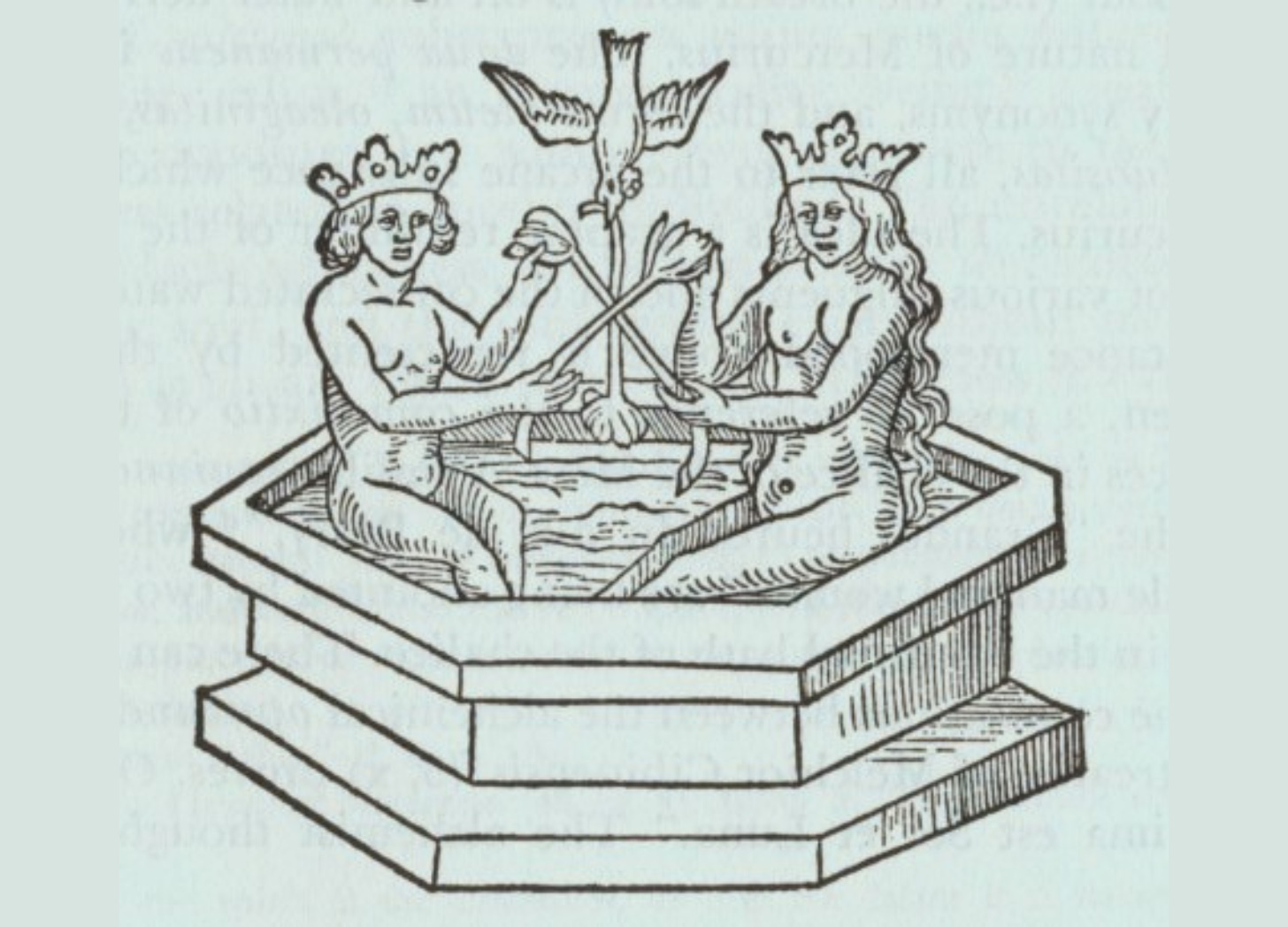After being delayed by a week due to illness, the podcast returns today with the first of a series of episodes on alchemy.
Alchemy is a challenging subject full of strange and enigmatic imagery. For many people it seems too difficult to bother with. It is confusing, even to the point of being incomprehensible. It is obsolete — nothing more than an historical folly. It may be perceived as having some connection to magic or occultism. Mostly, it seems too remote from the concerns of contemporary life to be relevant in any way to a modern individual.
There have been numerous occasions in my experience when, talking about Jung, the subject of his study of alchemy has come up and the question is asked: “What could alchemy possibly have to do with psychology?” These doubts are not unusual. Jung had his own misgivings about the field of alchemy.
As I note in the episode:
“Jung himself felt the whole enterprise to be a questionable one at first. Even after he had begun to sense that there was something valuable to be learned from alchemy and had purchased the first of what would become an extensive library of old alchemical texts, Jung struggled to get started with it.”
The relevance of alchemy to psychology is easier to understand if we remember that psychology, from a Jungian standpoint, is concerned with the activity of the psyche, which it sees as being revealed in the production of symbols and images, as for instance in dreams and fantasies. Jungian psychology takes those images seriously, seeking to discern their patterns of development and unfolding, as well as their potential meanings and their effects on such things as mood and motivation.
Jung’s recognition that, as he says, “the alchemists were talking in symbols — those old acquaintances of mine,” was the key that first opened the door of alchemy to his understanding. Just as is the case with our dreams, we cannot come to terms with alchemical symbolism merely through cognitive and rational means.
In fact, familiarity with dreams and dream interpretation can be useful towards gaining an understanding of alchemy. At the same time, as I say in the episode, the opposite is also true — alchemy can help us understand our dreams:
“Our dreams are filled with unusual images that often have no obvious reference in our personal lives. Or, to put it another way, unbeknownst to most of us, our dreams are filled with mythological, religious, and, yes, alchemical images. A familiarity with some of the motifs of alchemy, then, gives us an excellent way of amplifying and understanding our own psychic material.”
For the symbolic interlude of this week’s episode, I turn to an alchemical text called the Rosarium Philosophorum. In particular, I look at one of the illustrations of that treatise, a picture that Jung, in his interpretation of this work, calls “Immersion in the Bath.” This image, I suggest, captures an important core of alchemy, as it speaks to the transformational nature of the opus — “the dissolving of the old and the consolidation of the new.”
I examine the ways in which an image like this can be useful for our own practice of the symbolic life, revealing the participatory nature of the work involved — the necessity of our full “immersion” in the process.
In the coming weeks, the rest of this series will explore several key aspects of the world of alchemy. Look for episodes on the symbol of the prima materia, on the different stages of the work, and on the Philosophers’ Stone.
I hope you enjoy this latest offering from Digital Jung. You can find it wherever you listen to your podcasts or simply by clicking this link: Alchemy: Mirror of the Soul
Thanks for listening, and take good care!
Remainders
Here is a quote that didn’t make the final cut for this week’s episode. It comes from Marie-Louise von Franz’s book Alchemical Active Imagination. In it she identifies the archetypal impulse at the heart of alchemy, the spiritual dimension of the work which lay behind and beneath the alchemist’s exploration of matter.
“Man’s curiosity which has led him to experiment with materials was always based on the idea that indirectly he could find out more about the Godhead, or the divine mystery, the ultimate mystery of existence. Just as by looking at a painting or at some craft-work, and wondering about it, you can guess quite a lot about its author, so man always thought that by finding out about the mystery of the cosmos and existence one would also get closer to that mysterious force which made it, whatever it was.”
Upcoming Events
The Symbol of the Grail: I will be returning to the Jung Archademy starting on Monday, March 6th, 2023 for a deep dive into Wolfram von Eschenbach’s Parzival. In this class we will explore the rich symbolism of the Grail legend and discover the relevance of the Parzival myth to the modern experience of individuation. For more details visit: The Symbol of the Grail: Parzival and the Path of Individuation





After taking your class on Alchemy, I'm finding much usefulness to the symbol system. The alchemical operations offer a meaning to my own inner suffering and transformations. Hope your recent illness has passed and led to burning off of impurities!